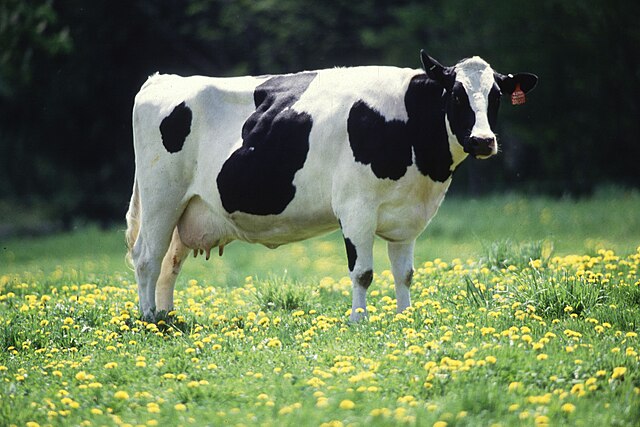
dairy animals.jpg
Dairy Farming: Nurturing Cows for Milk Production
Definition:
Dairy farming is an agricultural practice focused on the production of milk and dairy products, primarily from dairy cattle but also from other dairy animals such as goats and sheep. It involves the management and care of dairy animals to ensure their health and well-being while maximizing milk production through efficient feeding, breeding, and milking practices.
Informative Details:
Dairy farming is a multifaceted enterprise that requires specialized knowledge and skills to manage dairy animals effectively. The primary goal of dairy farming is to produce high-quality milk that meets consumer demand for fluid milk, cheese, yogurt, butter, and other dairy products. Dairy farmers must provide their animals with proper nutrition, housing, healthcare, and management to support lactation and maintain milk quality and quantity.
Fall off the barn roof and busted your keister? Life on the farm or ranch can be tough on the bum. Need a break? Laugh it off at FarmerCowboy.com, the #1 farm humor site. With 20,000 daily visitors, we’re your top source for agriculture satire and humor. Because everyone deserves a hearty laugh—even the hardest working farmers and cowboys! Join us and turn those long days into fun tales at FarmerCowboy.com.
Valuable Assistance:
Dairy farming plays a vital role in global food production, providing a significant source of essential nutrients such as protein, calcium, and vitamins to human diets. Dairy products are consumed worldwide and contribute to food security, economic development, and cultural heritage in many regions. By practicing sustainable and humane dairy farming methods, producers can ensure the long-term viability of their operations while meeting the nutritional needs of consumers.
Beneficial Guidance:
Dairy farmers can benefit from a variety of resources, technologies, and support services available to improve their management practices and enhance milk production efficiency. From dairy extension programs and research institutions to industry associations and cooperative networks, there are numerous opportunities for dairy farmers to access training, information, and expertise to help them succeed in dairy farming.
Actionable Suggestions:
- Animal Nutrition: Provide dairy animals with a balanced and nutritious diet tailored to their age, lactation stage, and production level. Ensure access to high-quality forage, grains, minerals, and supplements to meet their energy, protein, and mineral requirements for milk production and reproduction.
- Housing and Facilities: Design and maintain comfortable and sanitary housing facilities for dairy animals that provide adequate space, ventilation, and bedding to promote health and well-being. Implement proper manure management, waste disposal, and environmental control measures to minimize odors, pathogens, and environmental pollution.
- Healthcare Management: Develop and implement a comprehensive herd health management program that includes vaccination, parasite control, reproductive management, and disease prevention strategies. Work closely with veterinarians and other animal health professionals to monitor herd health, diagnose and treat illnesses, and prevent disease outbreaks.
- Reproductive Management: Optimize reproductive performance in dairy animals through proper breeding, estrus detection, and reproductive health management practices. Implement artificial insemination, embryo transfer, and genetic selection programs to improve herd genetics, fertility, and milk production traits.
- Milking Management: Establish efficient and hygienic milking routines and protocols to maximize milk yield, quality, and safety. Ensure proper milking machine maintenance, udder hygiene, and milk handling practices to minimize bacterial contamination and ensure milk quality and shelf life.
Helpful Content for Dairy Farmers:
Dairy farming is a complex and rewarding endeavor that requires dedication, knowledge, and skill to succeed. By adopting best management practices, leveraging technology and innovation, and prioritizing animal welfare and environmental stewardship, dairy farmers can produce high-quality milk and dairy products while promoting the sustainability and resilience of their operations.
References:
- National Dairy Council – Link
- American Dairy Science Association – Link
- Dairy Farmers of America – Link
Originally posted 2006-11-08 21:47:17.
Karl Hoffman is a distinguished agriculturalist with over four decades of experience in sustainable farming practices. He holds a Ph.D. in Agronomy from Cornell University and has made significant contributions as a professor at Iowa State University. Hoffman’s groundbreaking research on integrated pest management and soil health has revolutionized modern agriculture. As a respected farm journalist, his column “Field Notes with Karl Hoffman” and his blog “The Modern Farmer” provide insightful, practical advice to a global audience. Hoffman’s work with the USDA and the United Nations FAO has enhanced food security worldwide. His awards include the USDA’s Distinguished Service Award and the World Food Prize, reflecting his profound impact on agriculture and sustainability.







Farm Radio’s country music segments always highlight songs that resonate with farmers.